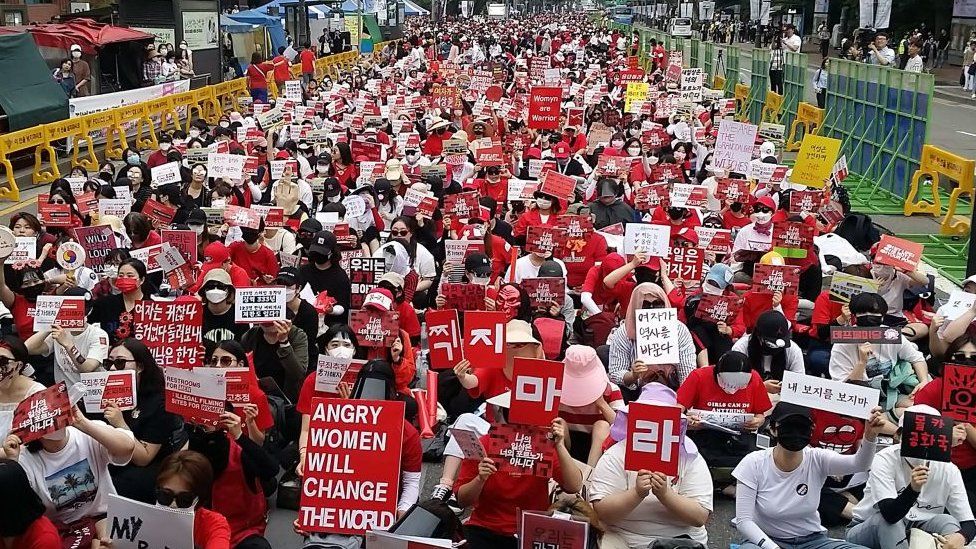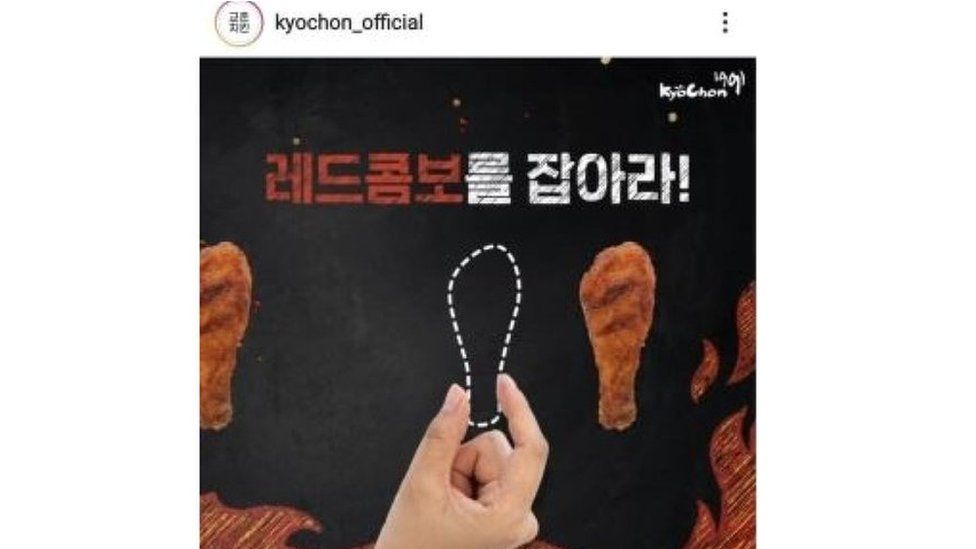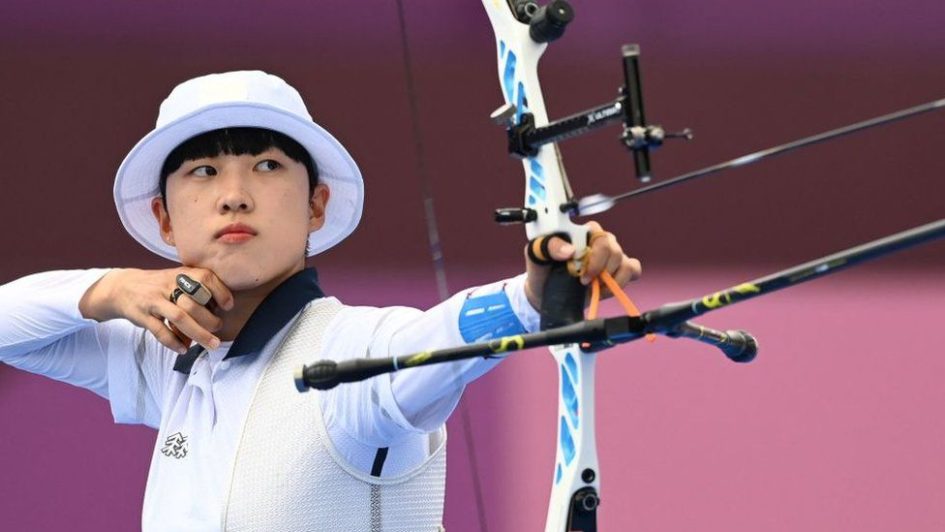By Yvette Tan and Waiyee Yip
BBC News
When South Korean archer An San won three Olympic gold medals in Tokyo, what greeted her back home wasn’t just praise. There was a flood of criticism as well.
Why? Because she has short hair.
Among the many insults that flew her way, An was labelled a feminist – a loaded term in South Korea often associated with being a man-hater.
One man said in a post: “It’s good she got a gold but her short hair makes her seem like she’s a feminist. If she is, I withdraw my support. All feminists should die.”
But as criticism of her grew, so did a campaign to defend her.
Thousands of women across the country began posting pictures of themselves with short hair – declaring that it did not make them any less of a woman
Women in South Korea have long battled discrimination and misogyny but over the last decade have made steps forward, from the country’s #MeToo campaign to the abolition of its abortion ban.
So will this latest movement do anything to propel further change?
‘It doesn’t make me less of a woman’
Han Jiyoung is the woman at the heart of the short hair campaign on Twitter, and created it under the hashtag #women_shortcut_campaign.
She told the BBC she was troubled when she saw “not one or two, but [many] misogynistic comments [about An] coming up on every male-dominated online community.”
These anti-feminists are largely young men, but also include older men and even some women.
“This kind of mass attack… sends the message that men can control the female body and a message that females need to hide their feminist identity,” she said.
“I thought starting a campaign for women to [show off] their short hair and to show solidarity to female Olympians would be effective in tackling both issues.”
But why is short hair associated with being a feminist?
Hawon Jung, author of an upcoming book on South Korea’s #MeToo movement, said the two were seen as intertwined after the “Cut the Corset” movement in 2018, where young women challenged long-held beauty ideals by wearing short haircuts and no makeup.
“Since then, short cropped hair has become something of a political statement among many young feminists,” the author added.
“This feminist awakening [drew] a strong backlash by men who thought they had gone too far.”

A contentious finger gesture
The short hair campaign comes just weeks after another aggressive campaign against “feminists”.
This controversy surrounded a finger gesture, which some men claimed mimicked a feminist hand signal belittling their penis size.
The gesture – involving the thumb and index finger pinched close together – was the logo of Megalia, the now-defunct radical feminist online community widely perceived to be anti-male.
Brands including convenience store GS 25 and fried chicken chains BBQ Genesis and Kyochon were forced to remove print ads containing the gesture earlier this year, following boycott calls.

Although the companies likely never intended to make any political statement it spawned a “witch hunt” of sorts among men to find any images that looked remotely similar and have them removed.
“Some men became fixated on the image because they associate it with a particular brand of feminism that they claim demeans and belittles them,” said Dr Judy Han, a gender studies professor at the University of California, Los Angeles.
At times, the outrage became so loud that companies were driven to apologise.
GS 25 President Cho Yoon-sung, for example, was demoted over the ad – even though he apologised for causing “pain” and said the firm would investigate those involved in the design of a poster featuring the gesture and a sausage.

Experts say that such apologies only further emboldened these angry men.
“They moved on to the next target – An San, a young Olympian who seemed to epitomise many of the things they hated,” said Ms Jung.
“She had short hair. She went to a women’s college. She used some of the expressions these online mobs had somehow defined as ‘misandrist expressions’ for no clear reason.”
Moving forward
The anger of these online mobs – mostly comprising young men – largely stems from the fact that they believe women’s success comes at their expense.
“Male-dominated online communities teach young men that all of their suppression is coming from women – for example that they are stealing their seats by performing better in tests,” said Ms Han.
Competition for university places and jobs in South Korea is fierce, and some men say they have been unfairly disadvantaged.
For instance, all men have to undergo 18 months of military service which they say delays their chances of getting ahead. There are also more than a dozen women-only universities – with several offering highly sought-after courses – and no male equivalent.
But the reality is women in South Korea earn only 63% of men’s salaries – one of the highest pay gaps among developed nations. The Economist glass ceiling index also ranks the country as the worst developed nation in which to be a working woman.
So what lies ahead for South Korean women – and are we likely to see any real change as a result of the latest campaign?
“[I think] there has already been real change in the last couple of years,” said Ms Jung.
“Women are trying to chart new paths for their lives and defying societal pressure to look a certain conventionally ‘female’ way – to have the freedom to choose whatever hairstyle they find most comfortable – that is one small part of it.”
Additional reporting by BBC Korean ‘s Serin Ha

Leave a Reply